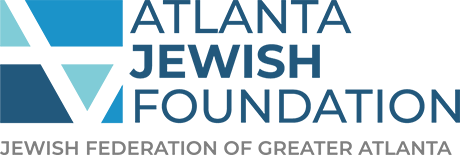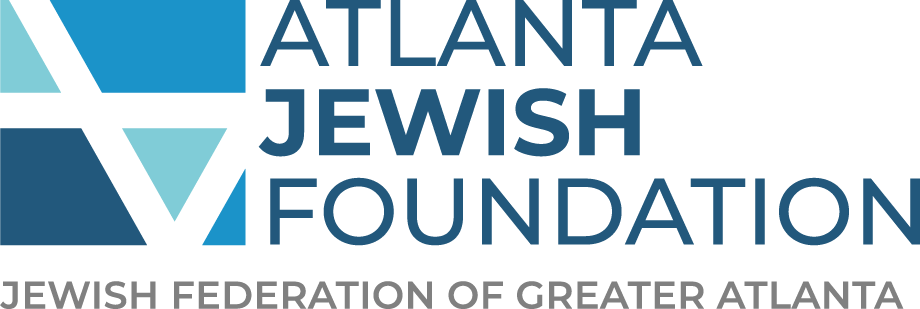Atlanta Jewish Foundation Giving Tips
November 13th, 2025
As we enter 2026, new legislation – the One Big Beautiful Bill Act (OBBBA) – is poised to reshape the philanthropic landscape in ways that demand attention and action from donors. This is a moment to recalibrate, reimagine, and recommit.
What Is the One Big Beautiful Bill?
OBBBA introduces sweeping changes to charitable tax deductions, many of which take effect in 2026. Key changes affecting charitable giving include:
- Above-the-Line Deduction for Non-Itemizers: Starting in 2026, taxpayers who do not itemize can deduct up to $1,000 (single) or $2,000 (joint) in cash gifts to qualified charities – donor advised funds (DAFs) are excluded.
- New Floor for Itemized Deductions: Itemizers can only deduct charitable gifts that exceed 0.5% of their adjusted gross income (AGI).
- Cap on Tax Benefits for High-Income Donors: Those in the 37% tax bracket will see their charitable deduction capped at 35% of the gift’s value.
How the New Legislation Affects Donors
These upcoming changes mean your charitable gifts might be worth more in 2025. Here are the top three ways to maximize both tax benefits and impact before year-end:
1. Give Appreciated Assets
Many people think cash is the only way to give – but appreciated assets like stocks, real estate, or other investments can sometimes be the smarter choice.
If you’ve held a stock for more than a year and it’s gone up in value, you can donate it directly to a charity. That way you avoid capital gains tax and receive a deduction for the full fair market value. That’s a double win! If you’re selling a business, real estate interest, or other highly appreciated assets, think about where philanthropy fits in – not only as an act of generosity, but as a tax-saving strategy.
You can even use appreciated assets to open or replenish a donor-advised fund.
2. Contribute to Your Donor-Advised Fund or Open a New DAF
A donor-advised fund, or DAF, is a simple and powerful way to manage your philanthropy. Think of it as your personal Tzedakah box – a charitable giving account that lets you add funds, receive a tax deduction, invest and grow your charitable dollars, and donate to your favorite charities – all from one secure online portal.
There are many benefits to opening or funding a donor-advised fund, especially this year.
Funding a DAF is incredibly easy and tax efficient
You can open a fund in just a few minutes using cash, wire, or appreciated assets, and receive an immediate tax deduction for your contribution.
“Let’s say this year I sold a piece of property and had a big capital gain,” says Michael Merlin, Vice Chair of the Atlanta Jewish Foundation. “I might need more of a tax deduction than usual. I can put more into my donor-advised fund and get that deduction, without having to donate it right then and there. Having a DAF gives me the ability to be much more strategic than just writing a check.”
Already have a DAF? Contribute to your existing fund before year-end. You can even involve your children and grandchildren in Jewish philanthropy by opening a L’dor Vador fund with a minimum contribution of only $1000 for donors under age 30. You will enjoy the tax benefits, and they will begin a meaningful journey of Tzedakah.
Preserve full deductibility while it’s still available
Starting in 2026, the One Big Beautiful Bill act introduces a new 0.5% AGI floor for itemized deductions, meaning the first 0.5% of your charitable giving will not be deductible. If you are in the top tax bracket, the value of your charitable deduction will also drop from 37% to 35%. These are subtle but permanent cuts on your possible tax benefit. By contributing to a DAF in 2025, you avoid those restrictions entirely and maximize your deduction under today’s more generous rules. Don’t miss the deadlines! See the 2025 year-end guidelines here.
Donor-advised funds are flexible and aligned with your values

Donor advised funds let you contribute now and decide later which organizations to support. Approximately 75% of grants sent out by Atlanta Jewish Foundation donors goes to Jewish causes – including synagogues, schools, summer camps, and other nonprofits in Atlanta, Israel, and globally. Our DAF holders also support broader-community causes like food insecurity, mental health, animal rights, medical research and more. By funding your DAF in 2025, you lock in today’s tax benefits while preserving the freedom to give thoughtfully and flexibly over time.
Bunching Works Best Before the Rules Change
One powerful strategy is “bunching” – combining multiple years of charitable contributions in a single tax year. This allows donors to exceed the standard deduction threshold and secure a larger itemized deduction.
Rachel Rosner, the Atlanta Jewish Foundation’s Endowment and Fiduciary Review Officer, recommends outlining a general 5-year giving plan, and, if possible, adding the full amount to your fund now. This method helps donors maximize tax benefits and potential investment growth, while still distributing grants to your favorite charities on your own timeline.
3. Roll Over Your IRA
If you are 70½ or older, you can transfer up to $108,000 (or $216,000 for married couples) tax-free from your IRA directly to a qualified charity – like the Jewish Federation’s Annual Campaign. This is called a Qualified Charitable Contribution (or QCD). If you are 73 or older, this is also a great way to satisfy your RMD (Required Minimum Distribution) without increasing your taxable income.
While your QCD cannot be used to fund a DAF, you can use it to establish an endowment or restricted fund, which will support the organizations you care about in perpetuity. And, with a $108,000 endowment you can establish a LOJE or PACE – the same amount as the maximum tax-free contribution! You can also name the Jewish Federation as a beneficiary of your IRA, ensuring Jewish Atlanta will continue to thrive for generations.
A TIME TO PLANT
These are just some of the tax strategies to think about before the end of 2025. For all tax planning, please consult your own tax professionals. These advisors will help you think carefully about your situation and whether this tax planning advice applies to you.
Whatever your year-end giving method, now is the time to plant the seeds of Tzedakah and strengthen our community. For more information about opening a Donor Advised Fund with Atlanta Jewish Foundation please contact Tova Baruch tbaruch@jewishatlanta.org or call 404.436.0089


